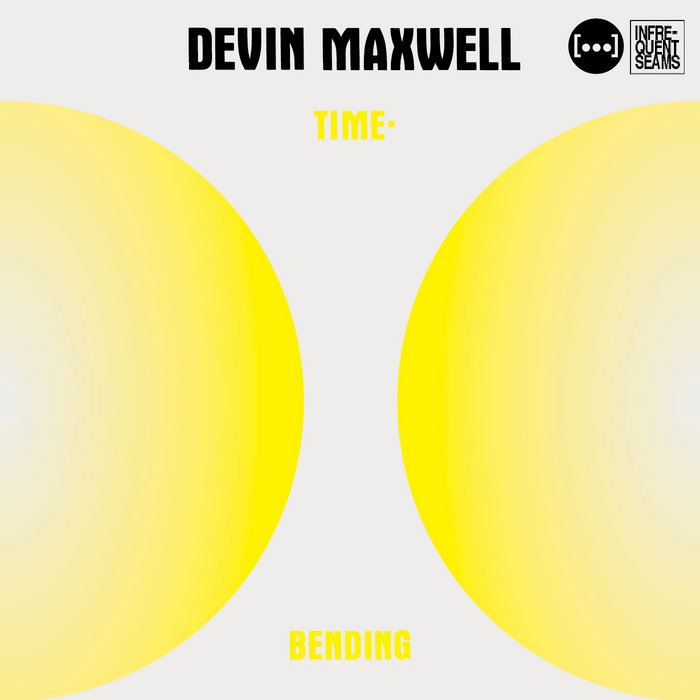For Devin Maxwell, writing music is an exercise in shaping time. The Utah-based composer pens rocky, textural works that emphasize how music exists inside and outside the ticking of the clock. With Timebending, Maxwell seeks to contort and distort time across five works that each embody a different mood. While the composer’s dense textures conjure a sense of mystery equal to the invisibility yet inescapability of time, his music rarely overcomes its force. Time instead feels like something he’s working within, a force that drives his music’s continuous twists and turns.
Timebending captures the breadth of Maxwell’s compositional technique, with each piece showcasing a different electroacoustic, electronic or acoustic palette. Though they’re each different, Maxwell’s use of texture and contrast draws them together; each mixes softness and vigour, thickness and airiness. He dedicates this album to composer Phill Niblock, whose drones exemplified the contrast that exists between density and light, showing how intensity can ultimately yield serenity. Maxwell’s music isn’t intended to capture Niblock’s singularity, but Niblock’s philosophies do serve as a roadmap as he writes his own thickly woven music. In practice, Maxwell’s compositions explore the motion of time by constantly changing and overlapping different instrumentations, finding their own transcendence in the chaos of unmatched sounds.
Despite Maxwell’s interest in morphing time, his music often feels shaped by it, led forward by the pace of each pattern or the length of each moment of silence. His melodies may always shift, but they don’t evolve into something new; instead, they enter and reappear with jarring swiftness. Tracks like opener ‘Bonneville Park 4’ swerve between harsh double stops with whimsical percussion and nervous flutes, leading to a sense of disorientation; others, like ‘Blusnoblues’, feel like an incohesive patchwork of chords. When nothing is glued together, it feels as if the music is just hanging there, suspended, rather than malleable.
But Timebending excels at creating other realms in which to get lost. Nowhere is this more evident than on ‘Wasatch Front’. An eerie melody wobbles under a paper-thin violin, slowly and carefully undulating. There’s a meditativeness to each movement, like watching a mill as it churns. It’s mysterious, too – every tone is shrouded in a haunted quietude, their rough edges illuminated and drawn out. Perhaps it’s not time that the composer bends – maybe the composer has the ability to create other places with their own otherworldly clocks and we get to escape into them.


